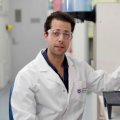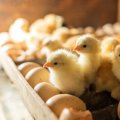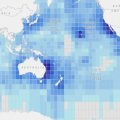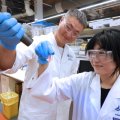A world expert in using computational science to study disease is joining The University of Queensland's Institute for Molecular Bioscience after receiving a $4 million fellowship to study chemotherapy-resistant ovarian cancers.
Professor John Quackenbush, from the and Dana-Farber Cancer Institute in Boston, has been awarded an Australia Fellowship by the National Health and Medical Research Council.
The fellowships are designed to attract and retain leading health and medical researchers such as Professor Quackenbush, who worked on the Human Genome Project and has more recently focused on using advanced computing methods to study women’s cancers.
“I chose to join the IMB because it is one of the world’s leading biomedical research institutes, and will give me the opportunity to work with some of the world’s leading scientists,” Professor Quackenbush said.
He will team with IMB’s Professor Sean Grimmond, who is Director of the Queensland Centre for Medical Genomics at IMB, the largest genome sequencing facility in Australia.
“Professor Grimmond and his team have developed technology to sequence ovarian cancers in unprecedented detail, providing the basic data we will need to better understand the molecular triggers behind the development of ovarian cancer and the evolution of chemoresistance.
“The next generation of therapies and standards of patient care will be developed by those most capable of interpreting the vast quantities of information now generated in medical research.
“I will bring advanced analytical and computational methods to bear on addressing the problem of chemotherapy resistance in ovarian cancer, which, despite extensive investment and years of study, has seen few advances and fewer new therapies.”
Professor Quackenbush will also use the opportunities afforded by the Fellowship to explore fundamental questions about the rules that govern how cells “change state,” a process of transformation that occurs during normal development but which goes awry in disease.
“This is one of the most important questions standing in our way of understanding the nature of human disease and I am honoured to have the opportunities to explore these questions with IMB and UQ scientists such as John Mattick, Christine Wells, and Ernst Wolvetang, as well as other renowned scientists like Emma Whitelaw.
"I believe our work will help change the way we think about the link between our genomes and the way in which the genetic program plays itself out.”
The Minister for Mental Health and Ageing, Mark Butler, presented Professor Quackenbush with his award yesterday.
Media: Minister’s Office – Adam Smith – 02 6277 7280
NHMRC – Carolyn Norrie – 0422 008 512 or 02 6217 9342
IMB – Bronwyn Adams – 07 3346 2134 or 0418 575 247
.jpg)











